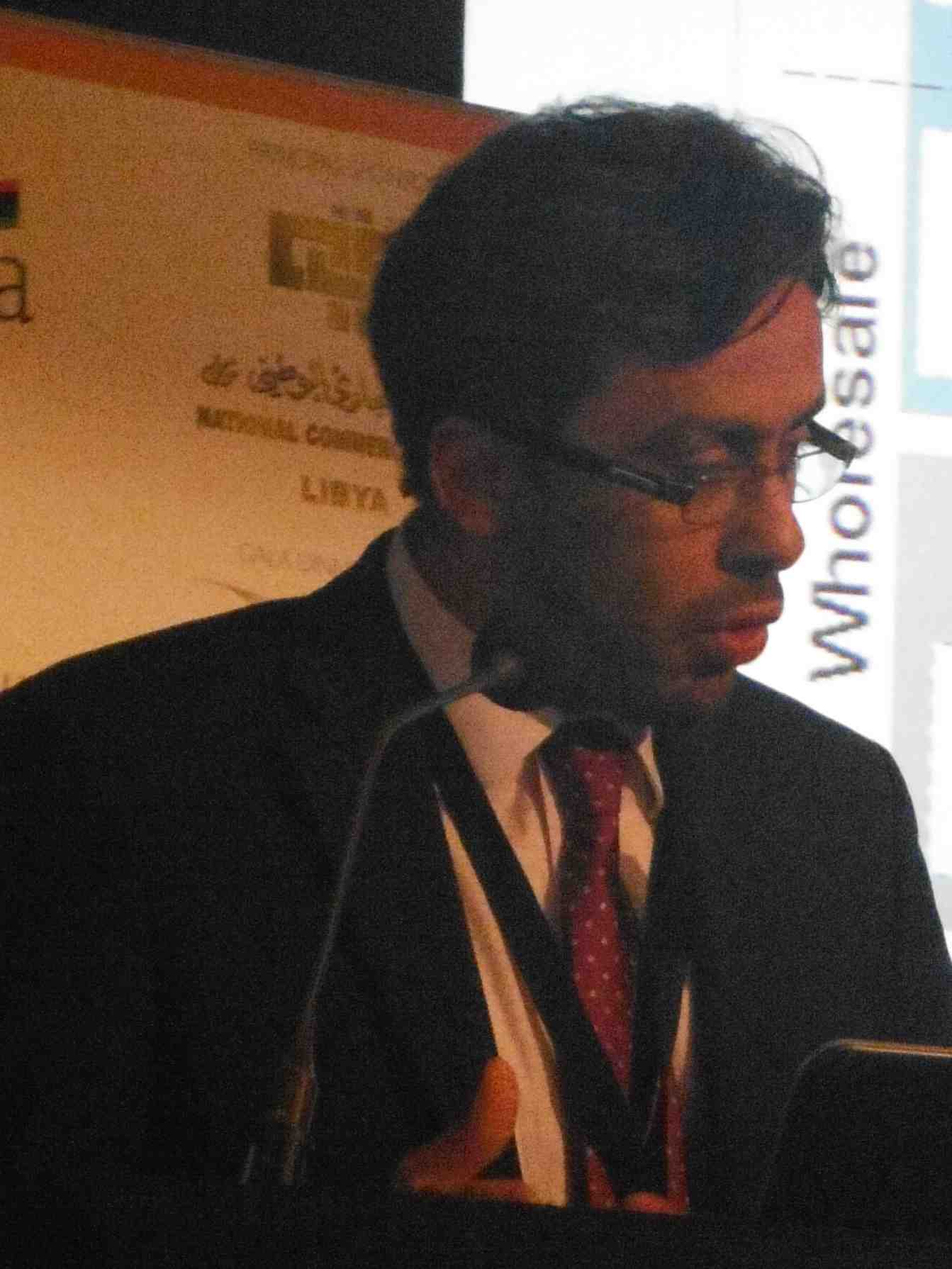By Sami Zaptia.
Tripoli, 17 September 2013:
Nick Baird, Chief Executive of United Kingdom Trade and Investment (UKTI), the British government Ministry charged . . .[restrict]with UK trade and investment, is paying a visit to Libya this week. His visit coincided with a UK healthcare delegation visiting Libya, the FDI Libya conference in London, the Oil and Gas Forum in Tripoli, and the official opening of the leading UK retail department store Debenhams.
Libya Herald was able to interview Mr Baird and asked why did the UK see Libya as an important market?
The UK government is on a major export drive with the aim of doubling its exports from 500 billion sterling to 1 trillion per year by 2020, explained Mr Baird.
The crisis in the world economy has meant that growth in the UK is driven by too much domestic growth which is in turn driven by credit. The UK needs sustainable growth, he explained.
Our traditional markets in Europe and the US are weak therefore the UK needs to change where it exports to. The UK needs to look at increasing exports to Asia, Africa and the Middle East where populations and markets are growing.
Libya is part of that export drive and is a priority target market for UK export growth, said the UKTI Chief Executive. It has huge potential, resources and entrepreneurial people. The 42 years of bad government under the previous regime have not fulfilled Libya’s development needs. It has relied too much on the exports of oil, rather than using oil money to build its infrastructure etc. This is where the UK is strong, said Baird.
The UK’s cooperation with Libya is also about attaining political stability by building a strong Libyan economy and creating jobs in diversified sectors – this would lead to stability, he explained.
We have had a long historic relationship with Libya. There are, for example, around 3,000 Libyan doctors working in the NHS. About 50% of overseas Libyan students are sent to the UK. And there is a large number of dual nationality Libyans.
The Libyan market is challenging because currently there is no political stability as Libya is in a stage of transition. There is now probably an inability by Libyans to sign big contracts, admitted the UKTI head.
But business is being done in Libya by British companies, he emphasised. It is being done by the British company NATS in the aviation sector training and improving air traffic control. Business is being done in the health sector and De La Rue is printing Libya’s bank notes. In the infrastructure sector the UK is cooperating with the Libyan Ministry of Transport and supporting Libya in its bid for the African games using the UK’s recent London Olympics experience.
The UKTI chief was equally optimistic about the UK and Libyan retail sector’s development. This was underlined by him being the guest of honour at the official opening of the first branch of leading UK department store Debenhams in the Siyahiya end of Gergarish road, Tripoli.
Regarding Libyan Prime Minister Ali Zeidan’s visit to London today to attend the opening of the FDI Libya conference, Baird expressed his great pleasure on this.
It is extremely important that the UK promotes investment in Libya, he felt. Moreover, he felt that it was very important that the UK government and business understands opportunities in Libya and not get “scared off” from Libya and understand the strong links between the two countries. “The more they understand the more companies will come to Libya. We see this as a two-way process”, stressed Baird
The UKTI CEO was clear about his message for British businesses. “I want to go back to the UK and say that business is being done in all sectors in Libya – don’t believe everything you read in the newspapers”, he added, referring to the media coverage of Libya’s security situation.
And with regards to doing business in Libya, the UKTI chief advised that companies “Need to build relationships and show patience and commitment to Libya for the medium term. Opportunities will come, and this country will use its entrepreneurship to build a strong economy”.
The politics need to be got right, but I am very optimistic about Libya’s potential, he concluded [/restrict]







